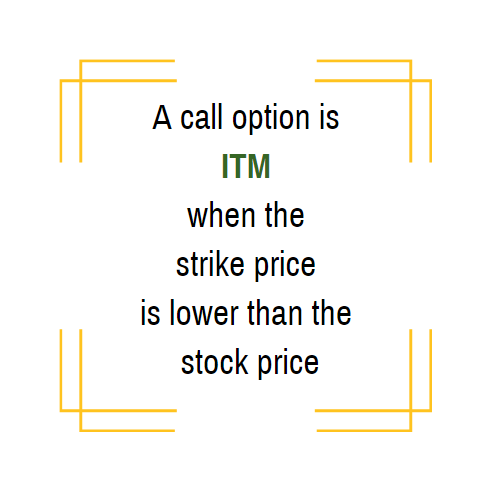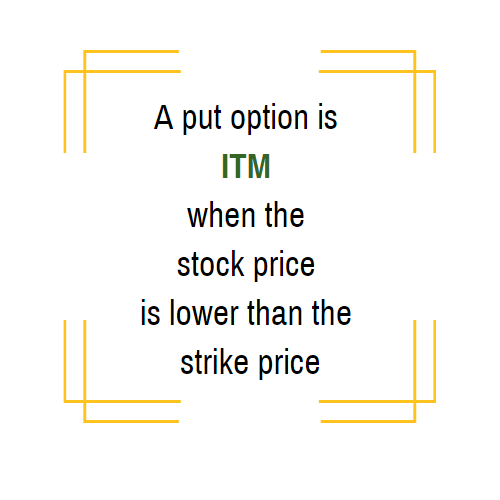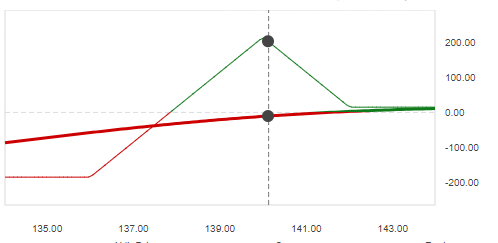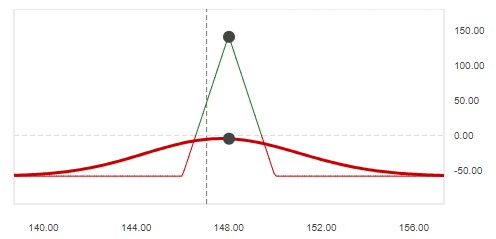
3 Reasons You Shouldn’t Leave Options Open to Expiration
Options provide us the right to buy or sell a stock at a specified price at any time on or before the expiration date; and options traders typically profit by the increase in value on long positions, or the decrease in value in short positions.
Often, these strategies see your profit increase the closer you get to expiration, sometimes even maximizing at the point of expiration. But is it a good strategy to leave options open to expiration?
What happens at expiration
If there is any value left (i.e. $0.01 or more) in the option at expiration, meaning it’s in-the-money (ITM), it will typically be automatically exercised/assigned by the broker. On the other hand, if the option expires out-of-the-money (OTM), meaning either the stock price remains below the strike price for Calls, or above the strike price for Puts, then it expires worthless.


Seems pretty simple, right? Let’s look at two examples-
-On the morning of expiration, my short position is OTM and quickly approaching maximum profitability. If I leave it and let it expire worthless, I get to keep the full premium amount.
-On the morning of expiration, my long position is way ITM. The stock is trending further in that direction, and if I leave it and it continues that way I will make even greater profit when the option is assigned.
In these two scenarios, should I leave the option open to expiration and maximize my profitability?
No. And here are three reasons why:

1: When you leave options open to expiry you risk your profit opportunity
On the day of expiration, unexpected events can happen, and stock prices can change quickly. Even when there are no planned events for the company who’s options you’re trading, a suprise from another company in the same industry can take your position on a ride.
Unexpected global events can occur too. And when these happen, they can affect the entire market including your stock as well.
If a sudden shift occurs on the day of expiration, there’s just not enough time left for things to reverse again before expiration. That’s why it makes sense to close your position early and secure a profit, even if it’s not for the full amount, rather than taking a chance that it turns into a loss.

2: Open positions tie up funds you could be using for new positions
Whether it’s a short postion or a long position, any time you hold on to your options to expiry you are freezing funds that could be used for other trades. You are limiting your trading potential.
When you have a short position open, your broker will typically place a hold on the funds to cover the position in case of maximum loss. Even if the position is way OTM, this is going to be the case.
But what if a major event happens, and another stock you are tracking makes a sudden move. This might be the perfect opportunity to open a position on it. But if your funds are tied up because of your short position, this might limit your ability to make that move.
This isn’t just the case for when you’ve sold a Put. This happens for any kind of credit spread you’ve opened- Bull Spreads, Bear Spreads, Iron Condors all place a hold on funds to cover you in case your position goes negative.
This hold is an opportunity cost. It prevents you from being able to use those funds for new positions.
Once that open position has gotten you a large chunk of your profit potential, go ahead and close it early. When you close it and capture that profit, you can then reinvest those funds into another option postion and potentially earn even more profit.

3: Volatility can increase substantially on expiration day
The first two points should give you enough reason not to leave options open to expiration. But there are two other factors that can greatly increase volatility on expiration day.
One is a relatively new trend that has developed recently that has just poured gasoline on stock volatility on expiration day. This is Zero Day To Expiration (0DTE) options trading.
What is 0DTE trading? This is the action of buying or selling an option when there’s less than a day until expiration. This activity picks up towards the end of the day before expiration, and just explodes on the day of expiration.
The sudden rush of activity on options affects not only the option premiums, but also the stock price itself. And becuase this trading activity can have a direct impact on stock prices, it can easily turn your OTM option ITM, or vice versa.
The other item that feeds volatility on expiration day is institutional buying/selling. This is when a firm with a large option position executes large stock trades to try and get the stock price to nudge in a certain direction.
Sounds like the market is rigged, doesn’t it? Individual large traders can affect stock price movement like this, and it actually occurs more often than you think. It’s not fair to small traders, but the volatility this can cause can affect your position.
You can avoid both of these things by simply closing your position early.
Take the money and run
Leaving options open to expiration can potentially add to your profit. But it’s also as likely, if not more likely to expose you to reduced profit or even loss. Don’t take that risk. Close your postion early, take your profit, and move on.
If you are new to options trading be sure to review Options Terminology 101! Your comments are welcomed! Alternatively contact via contact page.






